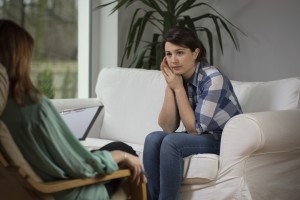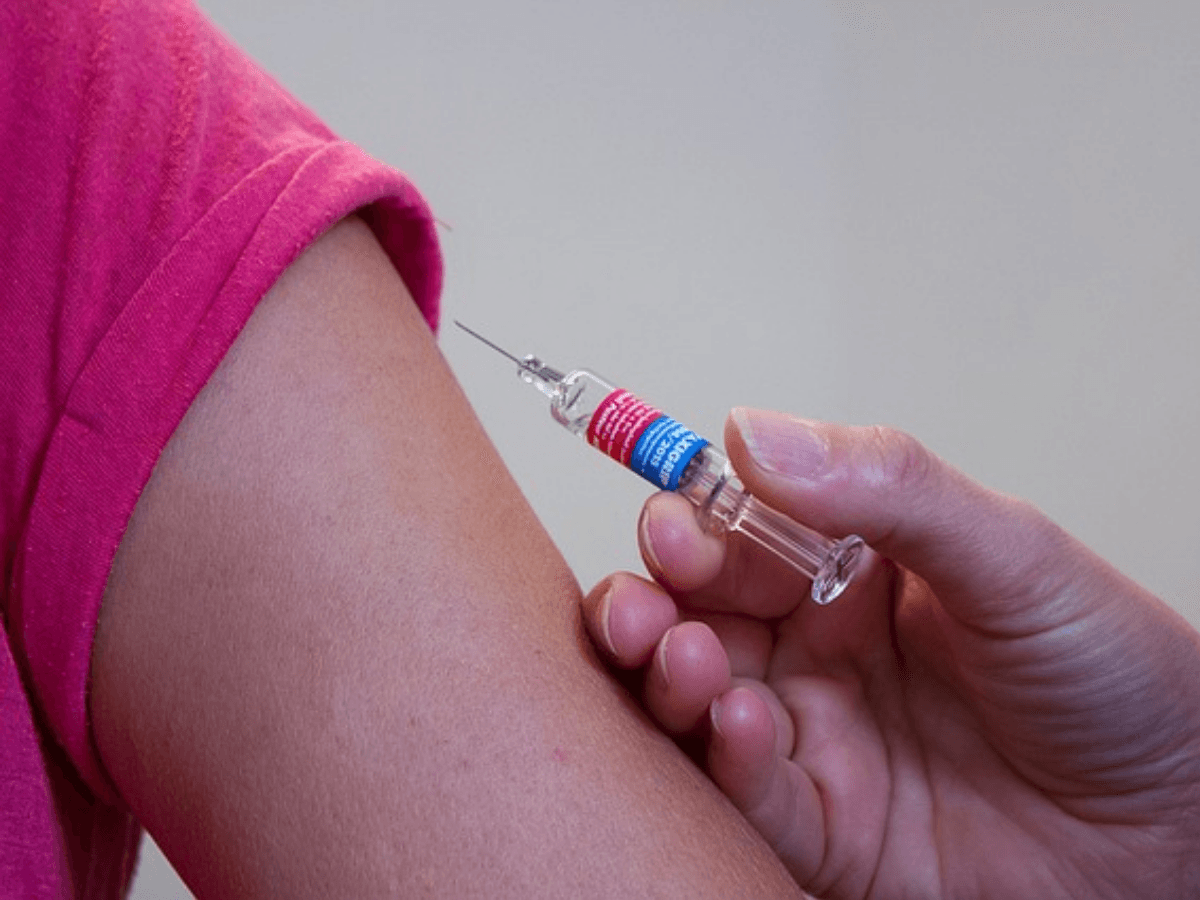The perception of health benefits of vaccines
Since the end of the 18thcentury with the English doctor Edward Jenner, and especially one century later with the seminal works of French biologist Louis Pasteur, vaccination has proven its efficacy against some deadly infectious diseases. While some people might still object and dispute the positive benefits of vaccination, there is undeniable evidence to prove them wrong.
How do vaccines work?
Vaccination works through stimulation of the vaccinated organism’s immune system. The goal of anti-infectious vaccination is to produce antibodies that fight virus and/or bacteria. The immune system gets trained to recognize and destroy such harmful agents. In the recent years, doctors have begun considering the possibility of not only treating cancer, but also preventing it by using vaccines.1
Can vaccines prevent cancer?
According to the World Health Organization, around 15% of all cancers in the world are attributed to chronic infections. These infections are caused by Helicobacter pylori (gastric cancer), human papilloma virus (or HPV – cervix carcinoma, anal and oral cancer), hepatitis B and C virus (liver cancer), and, in some parts of the world, Epstein-Barr virus (certain types of lymphomas).
The principle is quite simple: if we can prevent these chronic infections through vaccination, we will prevent the consequence of these chronic infections, i.e., cancers. This is used when healthy subjects are given cancer prevention vaccines, which will protect the body from disease-causing viruses.
Certain cancer prevention vaccines are already available against some carcinogenic viruses, such as hepatitis B or HPV. The recently published epidemiologic results have proven their efficacy. Just take a look at Australia; as early as 2007, Australia began providing the HPV vaccine to all the 12 to 13 year-old girls for free, and started doing the same for all boys in 2013. According to official data, the HPV rate among young women was reduced from 22 percent to 1 percent between 2005 and 2015. Furthermore, according to Michaela T. Hall’s recent article in TheLancet Public Health, HPV infection (and cervical cancers) should be completely eliminated within the next 20 years. Australia is on track to becoming the first country to eliminate cervical cancer, according to Karen Canfell, a cancer epidemiologist at Cancer Council NSW.
Vaccines and immunotherapy
 Besides using prevention vaccines, cancer immunotherapy is an example for using cancer therapeutic vaccines, also known as therapeutic vaccines, which include other types of vaccines against the cancers not related to infections. Treatment vaccines are given to patients already diagnosed with cancer, and they are complementary to other treatments, such as chemotherapy or radiation therapy. We now know that all cancer cells harbor specific antigens on their surface, and these antigens are quite specific to the cancer type. The goal of all the ongoing research is to elicit a specific immune reaction directed to these specific antigens. The final aim is the immune destruction of all these cancer cells. Some vaccines have already shown some efficacy, especially for metastatic melanoma.
Besides using prevention vaccines, cancer immunotherapy is an example for using cancer therapeutic vaccines, also known as therapeutic vaccines, which include other types of vaccines against the cancers not related to infections. Treatment vaccines are given to patients already diagnosed with cancer, and they are complementary to other treatments, such as chemotherapy or radiation therapy. We now know that all cancer cells harbor specific antigens on their surface, and these antigens are quite specific to the cancer type. The goal of all the ongoing research is to elicit a specific immune reaction directed to these specific antigens. The final aim is the immune destruction of all these cancer cells. Some vaccines have already shown some efficacy, especially for metastatic melanoma.
Outlook: what does the future bring?
Currently in different stages of development, a lot of vaccines are still only available through clinical trials, partly because it is extremely hard to develop cancer treatment vaccines that are fully successful.
There are still certain limitations, which the cancer treatment vaccines have to deal with, such as the often suppressed immune system in cancer patients, or the inadequacy of the immune system to recognize and subsequently destroy harmful cells – since cancer cells develop from an individual’s own healthy cells, the immune system may overlook healthy cells undergone changes.
Vaccination during cancer therapy
Many cancer specialists will recommend avoiding infectious vaccination during cancer therapy (chemo or radiation therapy) for two main reasons. The first one is quite obvious, as these cancer treatments will decrease the efficiency of the immune system as collateral “side effects.” Therefore, it is quite useless to seek the elicitation of immune response through vaccination during these periods; the final result could be quite disappointing. The second reason is linked to the fact that some vaccines use a live, attenuated form of the virus. Even in its “attenuated” form, the virus can reveal itself to be dangerous inside an organism with a weakened immune system.
It is beyond doubt that within the upcoming years we will see the emergence of new targeted therapies, and the development of new vaccines that, either alone or combined with existing therapies, will give new hopes to millions of cancer patients around the world.
Sources:
- ASCO
- Conquer Cancer Foundation
- cancer.net
- WHO
- The dawn of vaccines for cancer prevention. Olivera Finn, Nature Reviews Immunology volume 18, pages 183–194, 2018
- The Projected timeframe until cervical cancer elimination in Australia: a modeling study. Michaela T Hall, Karen Canfell et al. Published October 02, 2018
15 Oct, 2020 | Mitchell Silva | No Comments
Exclusive Interview With Psycho-oncologist Alejandra Glaser

Q. What can you tell us about you, Alejandra?
A. My name is Maria Alejandra Glaser, and I’m 35 years old. I live in Mar  de Plata, province of Buenos Aires, Argentina. It’s been almost 20 years since I moved to this city; I was born in Concordia Entre Rios. I moved to Mar de Plata for my academic training. I ended up staying here and raising a family. I have been a psychologist since 2006 and a specialist in Cognitive Psychotherapy since 2009. I did my hospital residency in a private hospital in the city, and currently I continue working in the Psyco-oncology department of this institution, under the Psychiatry and Health Mental service. I also manage the psychology residents who receive training in this institution. On the other hand, I also run my private clinic with adult patients.
de Plata, province of Buenos Aires, Argentina. It’s been almost 20 years since I moved to this city; I was born in Concordia Entre Rios. I moved to Mar de Plata for my academic training. I ended up staying here and raising a family. I have been a psychologist since 2006 and a specialist in Cognitive Psychotherapy since 2009. I did my hospital residency in a private hospital in the city, and currently I continue working in the Psyco-oncology department of this institution, under the Psychiatry and Health Mental service. I also manage the psychology residents who receive training in this institution. On the other hand, I also run my private clinic with adult patients.
Q. Why did you choose to study psychology?
A. Since I was a child, I have always been a good listener and helped as much as I could. Therefore, I chose a path related to humanistic and support studies. I decided to move to Mar de Plata to study psychology, 900km away from my family home, but where my older brother was also studying. I completed my studies in 2006, and from my first exposure to cognitive psychology, and more specifically cognitive psychotherapy, I knew this was the approach I wanted to use to relieve the emotional distress of patients. I therefore studied for an additional 2 years to specialize in individual cognitive psychotherapy, which I completed in 2009. A year earlier, I joined a private hospital, where I did my residency in clinical psychology. That’s where I learned about psycho-oncology as a specialty, and also where I met psychiatrist Dr. Hechen, with whom I currently work.
Q. Which services do you provide and which are the most relevant to cancer patients?
A. Within the Hospital, we have an exclusive psycho-oncology clinic, which is running one day per week and is the most used service by cancer patients. There are also two psycho-therapeutic groups, one of them for breast cancer patients, and another one for the other types of cancer. We also provide support to the patients during the administration of their chemotherapy treatment, and have also participated in interdisciplinary sessions with the treating oncologist.
Q. What is the main problem when following a therapy?
A. The impact of the diagnosis is often the initial problem, and where we meet many of our patients. Managing the uncertainty of facing the diagnosis and treatment is another recurring problem. Some other main issues that cancer patients need to face are the relationship with their treating physicians, the changes in family dynamics and their social network, body image, loss of autonomy and functionality, and death.
It is also important to highlight the need for some patients to talk about their personal developments from this experience, which can be traumatic. They also need to talk about the support they receive form relatives, and in some cases, about the way to explain their situation to their children.
Q. What gender and/or age are the cancer patients you usually  meet?
meet?
A. The patients are women in between 30 and 65 years old. The difference is not big, but I think that a reason why there are more women than men could be because women are more likely to be in touch with their own feelings.
The fact that lot of them are young makes me feel that they do have confidence in psychotherapy, psychology or psychiatry as a valid resource for help.
Q. What do you think the main benefits are for a cancer patient to see to a psychologist?
A. The space that we provide to patients becomes a place where, for the first time, they can talk about their fears and their hopes. They may distress, cry and laugh openly, without the judgment of others. I think that being listened to empathetically and the strategies in managing uncertainty are the main benefits.
Q. What are the major obstacles that prevent some from resorting to psychological help?
A. There are many. Among others, there are myths about psychotherapy and difficulty behind expressing one’s emotions. Some patients even say…” I’m not crazy enough to go to the psychologist…”
Q. Have you ever developed “feelings or emotions” for a patient?
A. Empathetic understanding is something that is present with patient visit. This means putting ourselves in their place and feeling what is happening to them. This is part of the basic tasks of psycho-oncology. We feel affection for our patients, we laugh with them, we cry, and we care about them, but, at the same time, our profession allows us to take enough distance to be able to act therapeutically with them.
Q. How has it affected your life being in continuous contact with cancer patients? Have you changed your perception of life?
A. Completely. Patients have taught me a lot about life, about my life goals and my priorities. Also about human communication, relationships and death.
Q. What are the most important tips you would like to share with other patients or family members who have a loved one facing cancer?
A. I would like to suggest them to transmit and contextualize the emotional distress that they may be feeling, also to accept certain emotions that they could be faced with, to give alternatives to the catastrophic thoughts, and to enable spaces for expressing their emotions. It is important to keep in mind that there are professionals that have the therapeutic resources to alleviate their transit through this disease. There is always hope. There is always something to do, even minutes before the dismissal.

